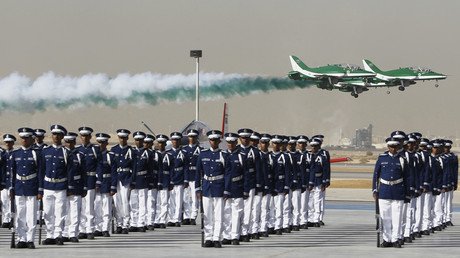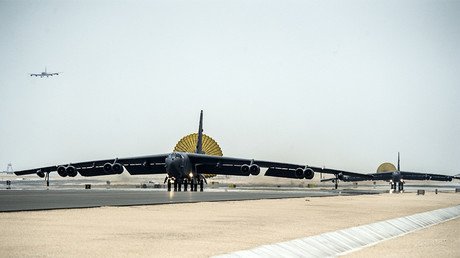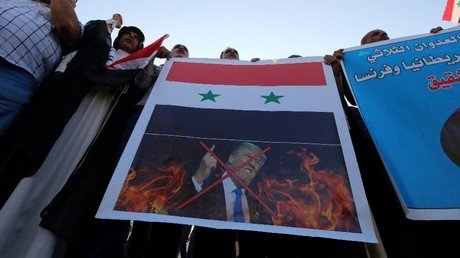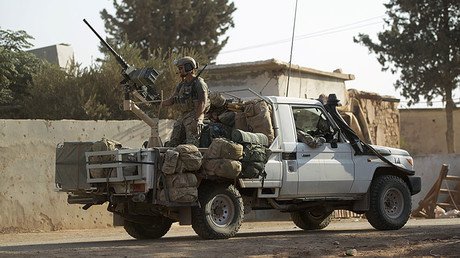Qatar govt. must send troops to Syria or lose US support and be toppled – Saudi FM
Riyadh appears to be trying to bully regional rival and fellow US ally Qatar into going to war in Syria, with the Saudi foreign minister citing the US leader's call for "wealthy" nations to stump up and send boots to the ground.
In his interpretation of US President Donald Trump's appeal to the affluent states in the region, Saudi Foreign Minister Adel Jubeir issued a thinly veiled threat to Doha, arguing the Qatari government will not last a week after the US cuts off its military support.
Qatar must "send its military forces (to Syria), before the US president cancels US protection of Qatar, which consists of the presence of a US military base on its territory," Jubeir said on Wednesday, as cited by the ministry's media center.
Should the US withdraw some 10,000 servicemen currently stationed at Al-Udeid air base near Doha, the government "would fall there in less than a week," Jubeir argued.
The Saudi top diplomat was referring to the remark Trump made during a joint press conference with French President Emmanuel Macron on Tuesday.
Reiterating his pledge to pull US forces out of Syria "as soon as possible," Trump pointed to "countries that are in the area, some of which are immensely wealthy" that should pick up the baton in Syria after the US withdraws.
"They wouldn't last a week. We're protecting them," the US leader said, urging for those who enjoy America's goodwill to "step up and pay for what's happening."
Al-Udeid is currently the largest US military base in the Middle East, and since the launch of the US-led coalition campaign against Islamic State (IS, formerly ISIS/ISIL) it has gained importance for the US military. Qatar's own army is one of the smallest in the region, with some 12,000 active military personnel, according to the GlobalFirepower.com.
In January, the Qatari Defense Minister outlined a far-reaching expansion of US military presence in the country and a potential US Navy deployment after it completes renovations of its naval ports. He also expressed hope that the base will one day become permanent. "Colleagues in the US Department of Defense are reluctant to mention the word permanent, but we are working from our side to make it permanent," he said.
During his press conference with Macron, Trump implied that the US has already persuaded its allies in the region to splash on the costly Syria campaign and deploy troops there.
"We've spoken to them. They will pay for it. The United States will not continue to pay. And they will also put soldiers on the ground, which they're not doing," Trump said.
The Wall Street Journal reported last week that Washington reached out to Egypt, Saudi Arabia, Qatar and the United Arab Emirates, asking them to fork out billions of dollars for Syria's redevelopment and also to send troops.
While Trump has been courting Saudi Arabia, choosing the conservative Gulf Kingdom as the first stop on his maiden foreign trip as the US president and striking arms deals worth billions of dollars with Riyadh, Qatar remains a stern US ally as well, despite its lingering beef with the Saudis.
Qatar and Saudi Arabia have been embroiled in ongoing diplomatic strife since June last year, when Saudi Arabia, as well as the United Arab Emirates, Egypt and Yemen, cut ties with the country over claims that it supports terrorism.
Immediately after, Trump fueled the row with an unlikely intervention, calling Qatar a "high-level sponsor of terrorism" and claiming credit for inciting the crisis. While the dispute is still not settled, the tensions between the Saudi-led block and Qatar appeared to have calmed down recently. Earlier this month, the Qatari military took part in joint Gulf Shield exercises that ended in Saudi Arabia on April 16 and saw 23 countries participating.

















